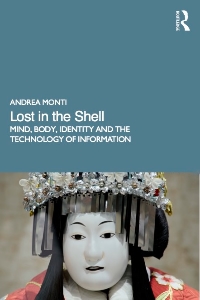In the United States, political powers are using private platforms as an armed wing to bypass the limits of the rule of law. Opening up new scenarios for control in the digital society by Andrea Monti – originally published in Italian in La Repubblica-Italian Tech Continue reading “An app that maps anti-immigration police has been removed from stores. A new form of censorship?”
What does Japan’s decision to give the prime minister control over intelligence mean?
Prime Minister Takaichi recently announced his intention to bring the national intelligence service under his control, which will be modelled on the US CIA. Is this another step towards overcoming the constitutional ban on operating outside Japan’s borders? By Andrea Monti – professor of digital identity, privacy and cybersecurity at the University of Rome-Sapienza – Initially published in Italian by Formiche.net Continue reading “What does Japan’s decision to give the prime minister control over intelligence mean?”
Books I Have Written
Personal data: a shape-shifter that changes depending on who uses it
Data can be anonymous in one context and personal in another: the EU Court reaffirms the changing nature of information. Big Tech and authorities will have to assess each case individually by Andrea Monti – Initially published in Italian by La Repubblica – Italian Tech
Continue reading “Personal data: a shape-shifter that changes depending on who uses it”
Chrome is not Google’s monopoly tool
The antitrust case against Google continues, but in the meantime, the judge in this historic case has “saved” Chrome, which will not have to be sold off. What is up for sale, however, is user data – by Andrea Monti – Initially published in Italian by La Repubblica – Italian Tech Continue reading “Chrome is not Google’s monopoly tool”





